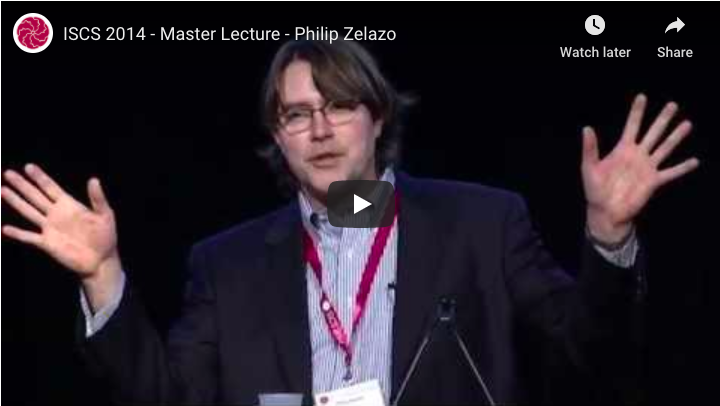Mindfulness training for youth is growing tremendously across the nation; however, few studies rigorously assess its effects. Studies that employ mindfulness training have shown promise in increasing emotional and cognitive regulation among youth, including those who are highly vulnerable. Rigorous controlled trials are vital for increasing our understanding of the efficacy of mindfulness-based interventions for …
Topic Archives:
Concurrent Session 3 – Does Mindfulness Meditation Employ Distinct Brain Mechanisms From Placebo-Related Analgesia?
Growing evidence reveals that mindfulness meditation significantly reduces pain responses in experimental and clinical settings. Recent neurobiological findings confirm that the cognitive state of mindfulness significantly modifies sensory, cognitive, and affective dimensions of nociceptive processing. However, there are likely nonspecific effects associated with mindfulness meditation-related pain relief that are also consistent with placebo-related responses. For …
Concurrent Session 3 – Clinical Applications of Meditation for War-Related Mental Health Consequences and Co-Occurring Conditions
The prevalence of post-deployment mental health conditions is high. Deployment to a war zone is associated with a threefold increase in new-onset posttraumatic stress disorder (PTSD), often co-occurring with depression, anxiety, substance use disorders, sleep disturbance, and chronic pain and resulting in high long-term personal and societal costs. High prevalence, combined with the complex chronic …
Concurrent Session 3 – Karma-Yoga at Work: A Mindful Alternative to Modern Management
Common experience tells us that our working lives produce mental states thatare far from mindful. Researchers and theorists have long criticized dominantmanagerial practices for their negative impact on individual well-being. Contemplative practices stemming from religious and philosophical traditions have provided individuals interpretive frameworks to attain empowerment and mindfulness in the midst of social and occupational …
Concurrent Session 3 – Mindfulness and SelfCompassion-Based Exposure Therapy for Combat Veterans with Posttraumatic Stress Disorder: Clinical Outcome and Neuroimaging Studies
Pilot work (thanks to a Mind and Life Varela grant) found significant symptomreduction following MBCT adapted for combat-related posttraumatic stressdisorder (PTSD). Our subsequent fouryear, federally funded project developed a novel 16-week PTSD group intervention for veterans returning from Afghanistan (OEF) and Iraq (OIF), utilizing mindfulness and self-compassion meditation (Mindfulness-Based Exposure Therapy, or MBET). PTSD patients …
ISCS 2014 – Master Lecture – Philip Zelazo
Fostering Resilience through Mindfulness in Childhood
Concurrent Session 2 – Stress Mitigation with Mindful Embodied Techniques in a Basic Science Class
Basic sciences in higher education confront a paradox, reaching the minds of many and the hearts of few. Compulsory requirements for graduation or professional schools push a high course demand, large classes, and a culture of Darwinian grading that contribute to student performance anxiety, fear of failure, intellectual disengagement, and a test-driven approach to content. …
Concurrent Session 2 – Mind the Gap in Resilience: Opportunities to Mapping Community Needs in Health
Resilience is an essential ingredient to a healthy life. The world population is getting older. The study of the phenomenon of resilience has often been examined in the psychological domain, but its complexity requires further investigation from both conceptual and methodological perspectives. The interdisciplinary approach is important to understand mind-body practices and their effects on …
Concurrent Session 2 – How Contemplative Practice Infuses Clinical Practice with Serious Illness
Physicians and nurses who work with patients dealing with serious, life-threatening illness experience stress, empathic overload, compassion fatigue, and burnout. In this qualitative study funded by the Mind & Life Institute and the John Templeton Foundation, we are conducting extended qualitative interviews with at least 25 clinicians with an established contemplative practice in the Buddhist …
Concurrent Session 2 – Transforming Moral Distress: Lessons from Philosophy, Neuroscience, and Contemplative Practice
For clinicians exposed daily to pervasive suffering, death, and moral conflict in their work, maintaining composure, courage, and resilience is especially difficult and can lead to moral distress. In this experiential, interactive workshop, we will present collaborative work, supported by the Mind & Life Institute, between clinicians, philosophers, and leaders in contemplative practice and neuroscience. …


